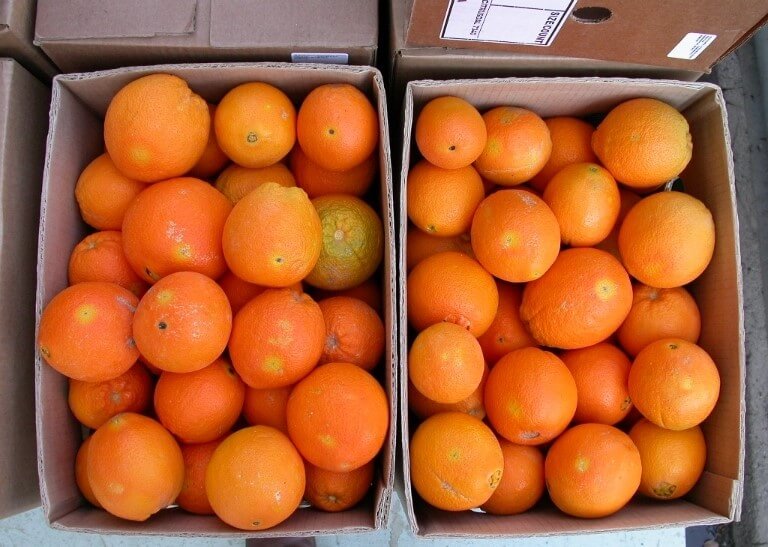Biocontrol and biopesticide products can control pests and diseases of crops to acceptable levels, are safer for the environment and for humans, and allow growers to access stricter markets. In South Africa, some viral biopesticides are used to control the false codling moth, a pest that threatens their citrus production.
The false codling moth pest
The false codling moth (Thaumatotibia leucotreta) is native to Africa and is not present in most parts of the world. This moth is a quarantine pest in numerous regions. This means that products entering those regions must not contain the pest.
The false codling moth attacks mostly citrus fruits. This makes it a problematic pest in South Africa that exports a large majority of its citrus production. It also infests various fruit crops like avocados and stone fruits. Caterpillars of this moth feed on fruits of all stages. Larvae enter the fruit to feed from the inside. As a result, it leaves small holes that can only be detected from a very close inspection.
Authorities inspect fruits for larval holes and can reject great quantities of fruits if they suspect an infestation. It can lead to great economic losses and threaten growers’ income.

False codling moth control with viral biopesticides
Several biocontrol and biopesticide products are available on the market in South Africa for the false codling moth. These include viral biopesticides such as Cryptex, which contains a granulovirus named CrleGV. This product can be sprayed in a liquid formulation on citrus trees (and other crops) once the presence of adult moths is at its peak. When caterpillars ingest CrleGV, the virus infects their gut and kills them rapidly.
Efficacy and benefits of viral biopesticides
These products are effective at managing the false codling moth and are now more popular among growers. They are as effective as chemical pesticides and can reduce fruit infestation by up to 92%. The biopesticides can reduce infestation levels even 17 weeks after its application.


In addition to effectively controlling the pest, these viral bioprotectants do not harm other organisms. They are also suitable for organic agriculture. This allows growers to meet the growing demand for organic foods. It is also beneficial as international markets can have strict requirements for the amount of chemical pesticide residues on food products. Authorities can reject shipments if they do not fulfill the requirements.
The efficacy of these biopesticides, used within an IPM program, including other measures such as sanitation practices and pheromone traps, ensures that fruits are pest-free and can be exported to international markets. This is extremely important in South Africa, as it is the world’s second-largest citrus exporter. Effective management practices can reduce import bans and improve growers’ livelihoods as a result.
More info
- To learn more about viral biopesticides against insects, visit this Andermatt web page.
- And if you want to read more successful stories of biocontrol, go on the International Biocontrol Manufacturers Association (IBMA) website.
